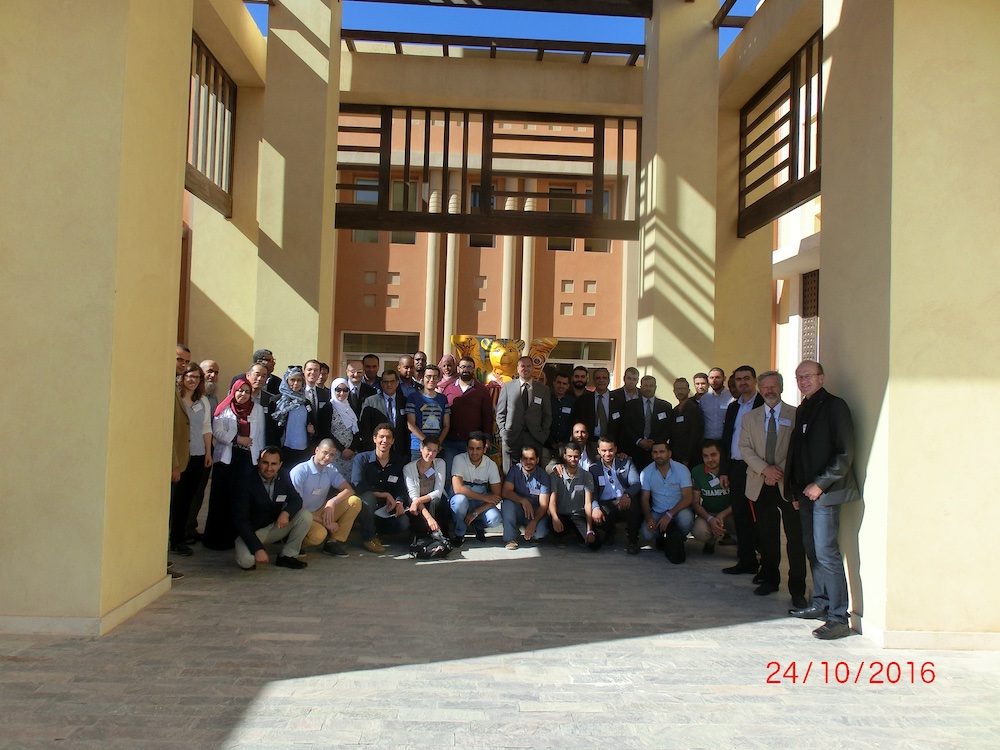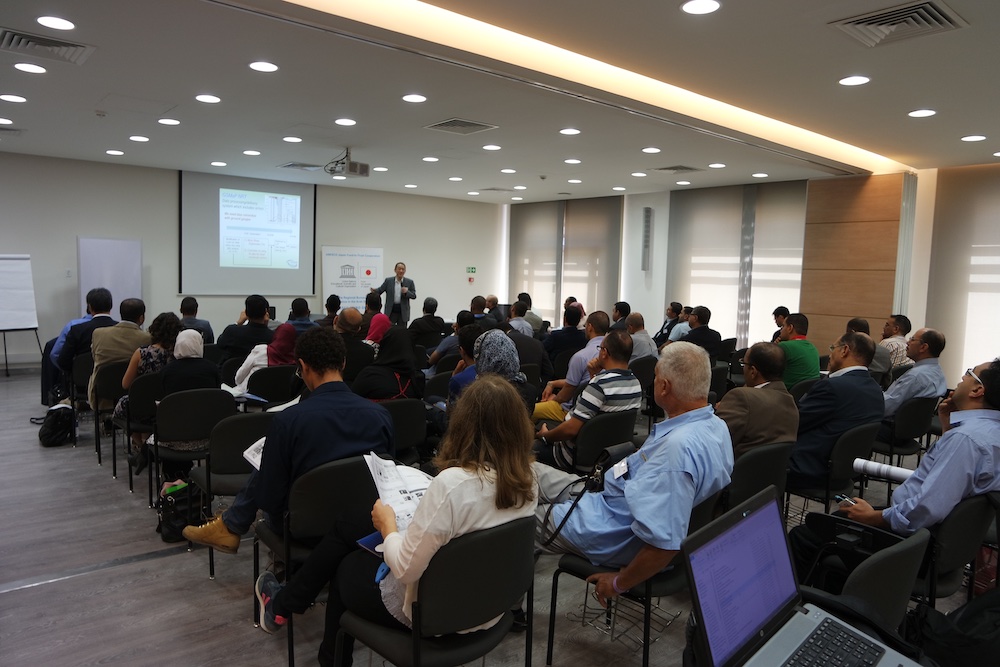2nd International Symposium on Flash Floods in Wadi Systems
Schedule: 25 – 27 October 2016
Place: Technische Universität Berlin, Campus El Gouna, Egypt
URL: http://ecohyd.dpri.kyoto-u.ac.jp/en/index/2.html
The Second International Symposium on Flash Floods in Wadi Systems (2nd ISFF) Organized by TUB
14th – 15th of October 2015, Kihada Hall, Uji campus, Kyoto University, Japan

The Second International Symposium on Flash Floods in Wadi Systems
Disaster Risk Reduction and Water Harvesting in the Arab Region 25 – 27 October 2016
Technische Universität Berlin, Campus El Gouna, Egypt

Supported by:
Global Alliance of Disaster Research Institutes (GADRI), DPRI, Kyoto University





Symposium Statement
In recent years, flash floods in Wadi Systems have caused severe damages, especially in the Arab regions. Human life, infrastructure such as roads and buildings as well as the environment are endangered and have been heavily destroyed. Flash floods are caused by extreme weather conditions, their occurrence is highly random and the associated problems are expected to increase in the near future due to climate change. On the one hand, there is an urgent need for flash flood protection and risk reduction, on the other hand, this rainwater can also be considered as a new resource for water harvesting. On 27th of October 2016, Twenty-six people have been killed in accidents related to flash floods in parts of Egypt, state television reported on its website Saturday 29th October 2016.The deaths occurred in the provinces of southern Sinai, the Red Sea and Sohag, areas hardest hit by torrential rains that started on Thursday 27th October 2016, the report said, citing the Health Ministry. Ras Gharib, in the Gulf of Suez, was the worst hit area with nine people reported killed. On Saturday 29th October, Egyptian Prime Minister visited the Red Sea town of Ras Gharib and inspected the damaged caused by flooding there, Egyptian television said. Dozens of Ras Gharib residents, angered by the government’s response to the floods, blocked a main road in the town and prevented PM from completing his tour, independent newspaper al-Masry al-Youm reported. The protesters chanted slogans against the prime minister, the report said. Last year on 27th October 2015, deadly flash floods hit Alexandria, Hurghada, Ras Gharib, El Sokhna and North Sinai.
Finding solutions to these challenging problems requires close collaboration between scientists – established as well as young ones, - practitioners, and stakeholders from federal and public organizations. So we encourage you to contribute to the development of future solutions and to widen your own expertise and profile by attending the international symposium.
This event is the second in a new series of annual International Symposia on Flash Floods in Wadi Systems.Furthermore, this symposium is supported by the Water Resources Research Center (WRRC) and the Global Alliance of Disaster Research Institutes (GARDI) of the Disaster Prevention Research Institute (DPRI), Kyoto University, Japan and Deutsches Wissenschafts zentrum Kairo (DWZ). The First International
Symposium on Flash Floods in Wadi Systems held in October 2015 in Kyoto, Japan, was attended by about one hundred scientists, practitioners and stake holders from 11 countries (Japan, Arab Region, Europe; see http://ecohyd.dpri.kyoto-u.ac.jp/en/index/1.html). The Second International Symposium on Flash Floods in Wadi Systems consists of oral and poster presentations. It is complemented by a Training Workshop on Numerical Modelling of Extreme Flash Floods in Arid Regionfunded by theUNESCO Office Cairo.
Participants
The 2nd ISFF included more than 30 Oral presentations and 20 Poster presentations presented during three days. Moreover, at the 3rd day Wadi excursion organized and due to the heavy storm on 27th of October the excursion was cancelled due to road cut because of flash floods. Prior to the symposium additional UNESCO training workshop successfully conducted for 55 participants. We are very confident that the symposium will contribute to the advancement of knowledge in dealing with flash floods in Wadi Systems. There are more than 80 participants from 14 countries. The Organizing Committee would like to very specially acknowledge the organizations mentioned on the previous page for their generous support, the International Scientific Committee for its advice as well as all other persons who contributed to the success of the event.
Objectives of 2nd ISFF
- We would like to participate in solve global issue by introducing Japanese technologies to help in FF protection and harvesting
- Eight technical sessions concerning to case studies, development projects, technologies, mitigation, modelling, and risk management
- The closing session will highlight and discuss the road map of research proposal, training, and implementation projects.
Themes of the Symposium
- Forecasting: modelling, monitoring, warning systems, management
- Mitigation measures and innovative technologies: risk assessment, dams, drainage channels
- Water harvesting: groundwater recharge, reservoirs, sedimentation, ecosystem
- Social aspects: public participation, land use and urban planning
- Case studies: Arabic region, international; excursion to local Wadi
- UNESCO session: Urgent capacity development for managing natural disaster risks of flash floods in Egypt, Jordan, Sudan and Yemen


Flyer as PDF is here
Flyer 10.2